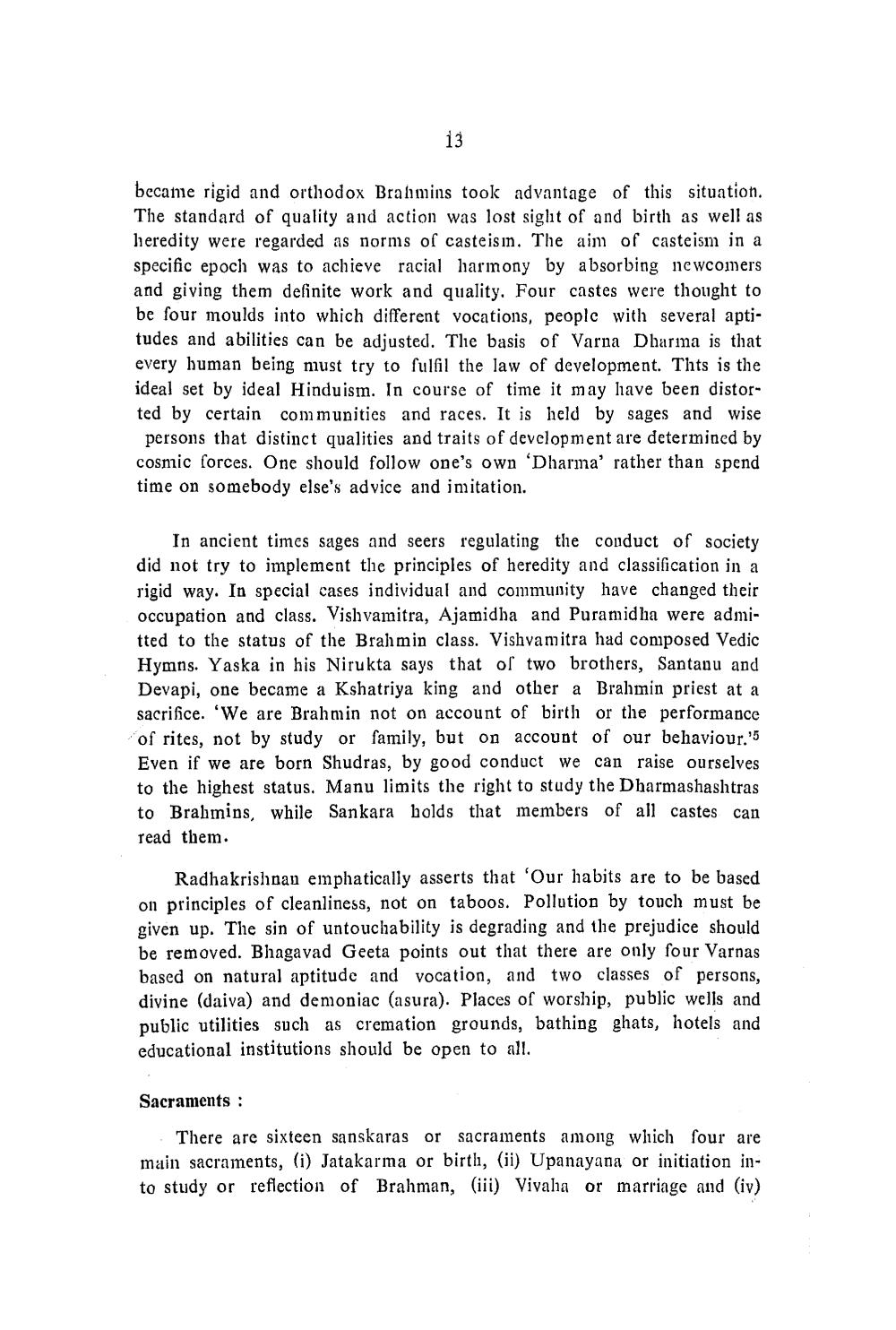________________
i3
became rigid and orthodox Brahmins took advantage of this situation. The standard of quality and action was lost siglit of and birth as well as heredity were regarded as norms of casteisin. The aim of casteism in a specific epoch was to achieve racial harmony by absorbing newcomers and giving them definite work and quality. Four castes were thought to be four moulds into which different vocations, people with several apti tudes and abilities can be adjusted. Tlie basis of Varna Dharina is that every human being must try to fulfil the law of development. Thts is the ideal set by ideal Hinduism. In course of time it may have been distorted by certain communities and races. It is held by sages and wise
persons that distinct qualities and traits of development are determined by cosmic forces. One should follow one's own 'Dharma' rather than spend time on somebody else's advice and imitation.
In ancient times sages and seers regulating the conduct of society did not try to implement the principles of heredity and classification in a rigid way. In special cases individual and community have changed their occupation and class. Vishvamitra, Ajamidha and Puramidha were admitted to the status of the Brahmin class. Vishvamitra had coniposed Vedic Hymns. Yaska in his Nirukta says that of two brothers, Santanu and Devapi, one became a Kshatriya king and other a Brahmin priest at a sacrifice. 'We are Brahmin not on account of birth or the performance of rites, not by study or family, but on account of our behaviour.'5 Even if we are born Shudras, by good conduct we can raise ourselves to the highest status. Manu limits the right to study the Dharmashashtras to Bralimins, while Sankara holds that members of all castes can read them.
Radhakrishnan emphatically asserts that 'Our habits are to be based on principles of cleanliness, not on taboos. Pollution by touch must be given up. The sin of untouchability is degrading and the prejudice should be removed. Bhagavad Geeta points out that there are only four Varnas based on natural aptitude and vocation, and two classes of persons, divine (daiva) and demoniac (asura). Places of Worship, public wells and public utilities such as cremation grounds, bathing ghats, hotels and educational institutions should be open to all.
Sacraments :
There are sixteen sanskaras or sacraments among which four are main sacraments, (i) Jatakarma or birth, (ii) Upanayana or initiation into study or reflection of Brahman, (iii) Vivala or marriage and (iv)




